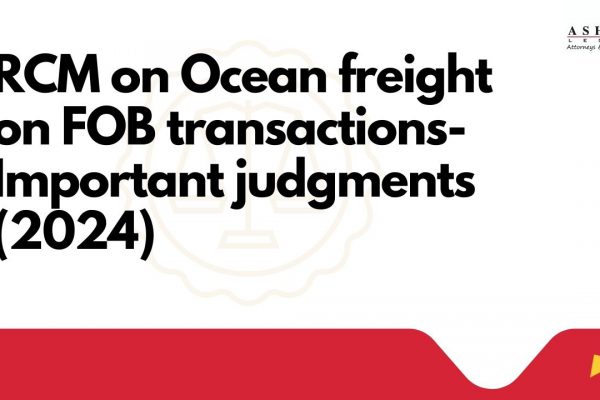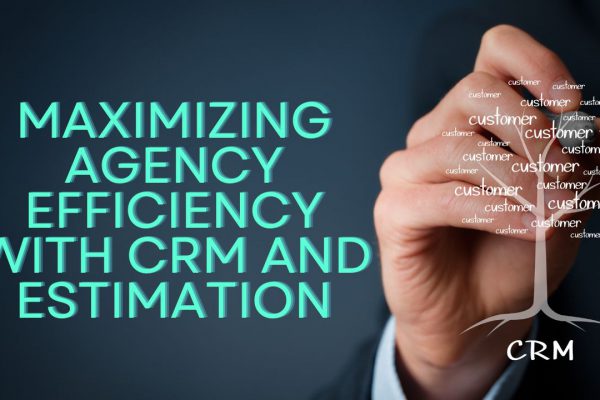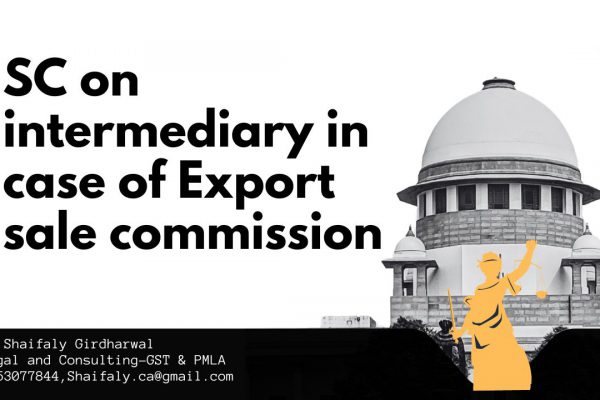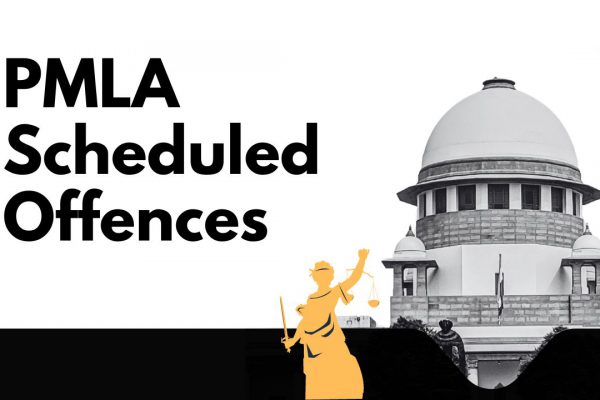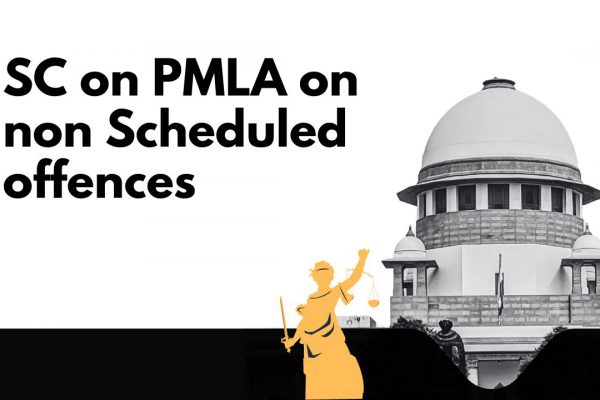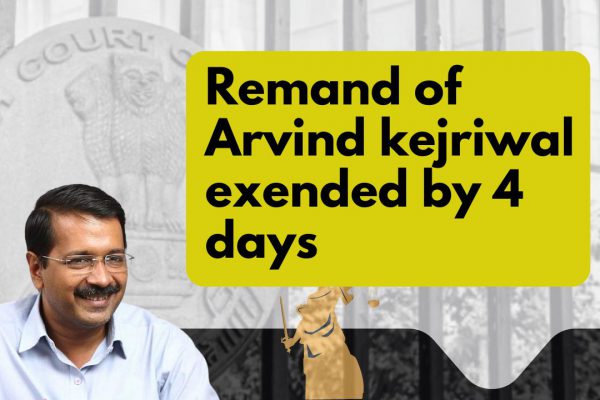TAXATION OF OCEAN FREIGHT
- First, let us understand “what is ocean freight”?
Ocean freight refers to the transportation of goods by sea from one port to another. It is commonly used for international trade, allowing goods to be transported between countries and continents. The process of ocean freight involves the use of cargo ships, which are also known as ocean vessels or container ships. These ships are specifically designed to transport different types of cargo, including containers, bulk cargo, and specialized cargo. Under ocean freight, the services are drawn from third parties called freight forwarders who pick up the goods for transportation, properly arrange them to be loaded for shipping purposes and eventually deliver those goods to the final destination. They handle the logistics and documentation to ensure the smooth movement of goods from the origin port to the destination port.
To arrange ocean freight, various other parties are involved like shippers, shipping lines, customs authorities and port operators. Shippers book the cargo space with freight forwarders or directly with shipping lines.
- What were the provisions related to Ocean Freight under Central Excise Act, 1944?
Under the Central Excise Regime, the ocean freight was generally considered as part of the assessable value of the goods for the calculation of central excise duty. Assessable value is the value on which the tax is levied. In the case of imported goods, central excise duty(CVD) was charged not only on the cost, insurance and freight (CIF) value of the goods but also on the ocean freight component.
There were certain exemptions and provisions related to ocean freight in central excise regime. If the ocean freight charges were separately mentioned in the invoice or documentation and the amount was not already included in the assessable value, it could be excluded from the calculation of central excise duty. This exemption provided relief to importers or manufacturers who wanted to exclude the ocean freight component from the taxable value of goods. Also, certain categories of goods, such as goods meant for export, were exempted from central excise duty altogether. This exemption also applied to the ocean freight component if it was specifically incurred for the transportation of export goods.
- Now let us discuss the provisions related to Ocean Freight under Service Tax Regime
Prior to 1st June, 2016, the transportation of goods by aircraft or vessel from a place outside India to the customs station of clearance in India was exempted from tax vide Notification No. 25/2012-Service Tax dated- 20 June, 2012. However, vide Notification Nos. 15/2017-ST and 16/2017-ST both dated 13th April, 2017, the importer of goods as defined in the Customs Act, 1962 has been made liable for paying service tax in cases of services of transportation of goods by sea provided by a foreign shipping line to a foreign charterer with respect to goods destined for India. This change came into effect from 23rd April, 2017. Thereafter, Indian shipping lines were required to charge service tax on inward ocean freight, even in cases where the service recipient was in a nontaxable territory. On the other hand, foreign shipping lines were exempted from service tax if the ocean freight was paid by a foreign service recipient. This created an anomaly in the treatment of inward ocean freight for Indian and foreign shipping lines, thereby providing them an edge over their Indian entities.
To address this issue, on 12th January, 2017, three service tax notifications were issued. The first Notification No. 1/2017 ST date 12.01.2017 removed the exemption for service providers and receivers outside the taxable territory specifically for inward ocean freight. The second Notification No. 2/2017 ST date 12.01.2017 stated that “the person in India who complies with Sections 29, 30 or 38 read with Section 148 of the Customs Act, 1962 with respect to such goods“ will be liable to pay service tax. Therefore, the Indian agent of the foreign shipping line will be the person liable to pay service tax for services provided by a person located in a non-taxable territory to another person located in a non-taxable territory. Further, through the third Notification No. 3/2017 ST date 12.01.2017 the service provided or agreed to be provided by way of transportation of goods by vessel from a place outside India up to the custom station of clearance in India was covered under complete Reverse Charge Mechanism where service receiver was liable to pay 100% service tax.
The above notifications caused confusion as to who is liable to pay service tax for inward ocean freight. On one hand, the Service Tax Rules specified the person liable to pay service tax as the Indian agent of the service provider when both the service provider and receiver are in a nontaxable territory. However, on the other hand the explanation in the reverse charge notification stated that the person liable to pay service tax is the person in India who complies with customs regulations, regardless of the location of the service provider or receiver.
Therefore, to summarize, there are three situations for inward ocean freight under Service Tax Regime:
a. When both the service provider and receiver are outside the taxable territory, the Indian agency of the service provider is liable to pay service tax.
b. When the service provider is in a taxable territory, the service tax is leviable in forward charge, regardless of the location of the service receiver.
c. When the service provider is outside the taxable territory, the Indian service recipient is liable to pay service tax.
- Below are some instances where the Hon’ble Tribunal has addressed the said issue-
1. M/s Geodis Overseas Private Limited Vs. The Commissioner of Service Tax (2022 (6) TMI 1085 – CESTAT Chennai)
Brief facts of the case are that the appellant is a freight forwarder and is engaged in freight forwarding of import and export shipments. They provide various services and collect charges in the nature of LCL Charges, Bill of Lading fee, handling charges, etc., on which they pay Service Tax. They also collect ocean freight charges from their customers and pay the same to shipping lines/ shipping companies. The appellant did not discharge any Service Tax on the ocean freight charges.
The same view has been taken by the Hon’ble Tribunal in the other decisions also and there is no hesitation to hold that the demand of Service Tax on ocean freight charges cannot sustain and requires to be set aside.
2. M/s Universal Industries Vs. Commissioner, CGST- Dehradun Service Tax (2022-TIOL1054-CESTAT-DEL)
It was alleged that the Exemption Notification no. 25/2012-ST dated 20.06.2012 was amended vide Notification no. 1/2017-ST dated 12.01.2017 and a proviso was inserted in entry no. 34, to the effect that exemption provided to the services of transportation of goods by a vessel from a place out-side India upto the Customs station of clearance in India (‘Ocean Freight’ for short) was withdrawn. In the sequence vide Notification no. 15/2017-ST dated 13.04.2017, with effect from 23.04.2017 the importer was made the person liable to pay the Service tax on Reverse charge basis. In spite of the fact that the appellant had paid the IGST on ocean freight, revenue demanded service tax on the ocean freight under Reverse Charge Mechanism, alleging that the Bills of Entry had been filed on 22/05/2017 & 14/06/2017 (during service tax regime). The demand was confirmed being Rs. 91,110/- along with interest and penalty. Being aggrieved the appellant had preferred appeal before Commissioner (appeals) who vide impugned order in appeal have been pleased to dismiss the appeal.
Aggrieved with the impugned order, the Appellant urges that the he has paid custom duty on CIF value which includes ocean freight element. Thus, there can be no demand of service tax on the purchase price of goods, even under Reverse Charge Mechanism.
After considering the contentions, Tribunal held that the appellant has purchased fertilizers which is their inputs, at CIF value which includes the ocean freight element. Thus, the demand under service tax is not attracted.
3. Asiatic Drugs & Pharmaceuticals (P.) Ltd. v. Commissioner Central Goods and Services Tax, Alwar ([2022] 139 taxmann.com 473 (New Delhi – CESTAT))
The appellant had already paid customs duty, CVD etc. on the import price, which includes ocean freight. Therefore, on being advised that he was not required to pay service tax again on the
freight (under reverse charge), the appellant filed the refund application on 06.04.2018, praying for refund of the amount of tax with interest and penalty. It was further urged that as the service tax was paid under the provisions of service tax vide service tax challan, as per the provisions of service tax, prior to 01.07.2017, the appellant could not take credit in their cenvat register, under GST provisions.
The Hon’ble Delhi Tribunal held that the transaction value for Custom duty and Excise duty
(CVD), includes the ocean freight, and accordingly the appellant has suffered the double taxation, by again paying the service tax on the ocean freight, as demanded by the Revenue.
Accordingly, the Hon’ble Tribunal allowed the appellant’s appeal and set aside the impugned
order. It was further held that the appellant is entitled to refund of service tax Rs. 11,31,601/- + Interest Rs. 2,91,590/- + Penalty Rs. 1,69,740/-, totaling Rs. 15,92,931/-.
4. Panasonic Energy India Co. Ltd. v. Commissioner of Customs, Central Excise & GST, Indore ([2021] 131 taxmann.com 24 (New Delhi – CESTAT))
The Hon’ble Delhi Tribunal specifically held that in CIF transactions, importer being not service recipient, is not liable to pay Service Tax on ocean freight and the refund of duty is liable to be
paid to the importer.
- Coming to the provisions related to the Ocean Freight under CGST Act, 2017
Indian GST on the Ocean Freight comes into light when the goods are transported from/to Indian port to/from any foreign port. For levy under GST, there should be supply of goods / services or both as specified under Section 7 of CGST Act. The activity of transportation carried out by the shipping line would clearly be a service and leviable to GST.
- Sections of GST laws governing ocean freight
Section 5(3) of the IGST Act: This section notifies the supplies which are taxable to GST under the reverse charge mechanism. Under the reverse charge mechanism, a recipient of goods/service is liable to pay GST instead of the supplier.
Section 2(93) of the CGST Act: This section defines the term recipient as follows:
- “The person who is liable to pay consideration where the consideration is payable for the supply of goods or services or both.
- The person to whom the service is provided, even if no consideration is payable for the supply of service.
- The person to whom goods are made available even if no consideration is payable for the supply of such goods.”
- Notification No. 10/2017- Integrated Tax (Rate) dated 28th June 2017: This notification stated the categories of supplies that are liable to GST under the reverse charge mechanism. The Government has included the term importer in this category.
- Categorization of freight expense at the time of import
The freight expense in case of import of goods can be categorized into two types based on transaction value:
1) Based on CIF (Cash, Insurance and Freight) value.
2) Based on FOB (Free on board) value.
Based on CIF (Cash, Insurance and Freight) value.
While importing goods, if no separate transportation charges are charged from the importer by the supplier for bringing goods into India, then the value charged on the goods is called CIF value. The importer is not the recipient of the service of transportation of goods as per Section 2(93) of the CGST Act in case of CIF value. In this case, the supplier/ the shipper is the recipient of service and therefore, the importer is not liable to tax.
Based on FOB (Free on board) value.
Now, the other situation is where the importer has hired the ocean freight service provider and he makes the payment for the import of goods. So, here the importer can be clearly defined as a recipient as per section 2(93) above. Further, as per the Notification No. 10/2017 dated 28th June 2017, the importer is included in the category of supplies liable to reverse charge mechanism. Therefore, as against the CIF import, the importer is the service recipient under FOB import.
Thus, if the shipping line is located in a non-taxable territory, then GST is payable by the importer, i.e., the recipient of service. If the shipping line is located in India, then the shipping line itself will have to pay GST on a forward charge.
However, in the case of imports, customs duty is applicable on assessable value, and the said assessable value is already inclusive of the freight amount. In such case, the IGST is also payable on the import of goods on the freight element by including it in the assessable value of goods. Therefore, the applicability of IGST on RCM basis will lead to double taxation.
In 2017, the Ministry of Finance had imposed service tax on a reverse charge basis on ocean freight incurred by an importer. This tax was payable even if the importer did not directly pay the ocean freight charges to the shipping company/freight forwarder. This proposition has been continued into the GST regime as well. The GST law specifically provides that the importers are required to discharge IGST at 5% on ocean freight charges under the reverse charge mechanism. However, at the same time, customs duty on the CIF value (which includes the freight component as well) of the goods imported into India is also paid by the importer. As a result, there is double taxation on the ocean freight under GST law, which is an impediment and has inflated the cost of imports.
The landmark ruling in case of Mohit Minerals Pvt. Ltd. & Ors. Vs. Union of India & Ors.
Recently, the Hon’ble Gujarat High Court in the case of Mohit Minerals Pvt. Ltd. & Ors. Vs. Union of India & Ors. (TS-29-HC-2020(GUJ)-NT), held that no tax is leviable on the ocean freight for services provided by a person located in non-taxable territory by way of transportation of goods by a vessel from a place outside India up to the customs station of clearance in India.
Brief facts of the case
In this case, the taxpayer was engaged in the business of importing coal from various countries. It discharges the customs duty at the time of import on the assessable value as determined under Section 14 of the Customs Act, 1962. The value also includes ocean freight.
In addition to the levy of customs duty and IGST at the time of import, the taxpayer (as an importer) was also required to pay IGST on ocean freight, leading to double taxation on the ocean freight amount.
The taxpayers, being aggrieved by the fact that ocean freight is being taxed twice, had filed various writ petitions before the Gujarat High Court seeking quashing of the notifications mentioned above, by declaring that the same is ultra-vires the IGST Act, 2017.
The taxpayers challenged the levy before the Gujarat High Court by inter-alia arguing as under:
The provisions contained in the IGST Act apply only for supplies made within the taxable territory. In the case of ocean freight, since both the service providers (i.e., shipping company and exporter) are located outside India, IGST cannot be levied.
Since IGST was paid at the time of import on total assessable value (which includes ocean freight), the notifications requiring the importer to once again pay IGST on the same component tantamount to double taxation and thus it is unconstitutional.
Under Section 5(3) of the IGST Act, the liability to pay tax can be shifted from the provider of supply to the recipient on a reverse charge basis. However, as per Entry 10 of Notification No. 10 / 2017, the liability has been shifted on the importer and not on the recipient, and thus entry is ultra-vires to Section 5(3).
After considering the various provisions/rule of GST law, the Hon’ble High Court observed as under:
“Section 5(3) by the IGST Act, which deals with the discharge of tax by the recipient under reverse charge on supplies, does not include a person who is not the recipient of the supply. The taxpayer (as the importer), when not being the recipient of ocean freight services, cannot be made liable to pay tax under the IGST Act.
Ocean freight services provided by a person in non-taxable territory to another person in a non-taxable territory are neither an inter-state supply nor an intra-state supply. Such service is not covered under the scope of the IGST Act, and therefore, cannot be taxed without the authority of law.
A supply where both suppliers and recipients are outside India can be made leviable to tax only under Section 7 (5) (c) of the IGST Act provided that the supply is in the taxable territory.
The entire supply has taken place outside the taxable territory, i.e., outside India, as both the service provider and service recipient are located outside India. The IGST Act does not sanction extraterritorial jurisdiction, and the mere fact that the transportation of goods terminates in India does not mean that the supply has taken place in India.
IGST cannot be imposed on the same freight amount by treating it as a supply of service since freight also suffers IGST as a part of the assessable value of imported goods. This is necessary to avoid the vice of double taxation.
The notifications mentioned above, being subordinate legislation, which acts as to deem the importer to be liable to pay tax under reverse charge, are ultra-vires the provisions of the IGST Act. Consequently, the imposition of IGST on ocean freight and deeming the importer as the person liable to pay tax are unconstitutional, given that there is no statutory sanction for levy and collection of such tax.”
Based on the above, the High Court held that no tax is leviable under the IGST Act on ocean freight for the services provided by a person located in non-taxable territory by way of transportation of goods by a vessel from a place outside India up to the customs station of clearance in India. Moreover, the notifications mentioned above are declared ultra-vires the IGST Act, as they lack legislative competency. Hence, both the notifications are hereby declared to be unconstitutional.
Finally, as on 19/05/2022, the Hon’ble Supreme Court (Union of India v. Mohit Minerals (P.) Ltd [2022] 138 taxmann.com 331 (SC)) upheld the decision of the Gujarat High Court in the case of Mohit Minerals Pvt. Ltd. & Ors. Vs. Union of India & Ors. [TS-29-HC-2020(GUJ)-NT]. The Supreme Court after listening to the appellant (the Union of India) and the respondent (Mohit Minerals Private Limited) has opined on various issues, which are summarized hereunder –
1. In CIF contract of import, an Indian importer cannot, on a reverse charge basis, be subjected to levy of IGST separately on component of ocean freight paid by foreign seller to foreign shipping line.
2. Specification of Indian importer as recipient of service by Notification No. 10/2017-Integrated Tax (Rate) is only clarificatory; this notification does not specify taxable person different from recipient prescribed in section 5(3) IGST Act for reverse charge.
3. Mere payment of consideration by foreign exporter to foreign shipping line in CIF imports does not mean that there was no supply of freight service to importer.
4. Importer of goods in India is to be considered as recipient of service of transportation of goods by vessel from outside India to a place in India as he is ultimate beneficiary though shipping service is provided by foreign shipping line to foreign exporter in CIF contract.
5. Levy of GST on supply of transportation service by foreign shipping line to foreign exporter to import goods into India is not extra-territorial as services are rendered for benefit of Indian importer and transaction has nexus with territory of India.
6. Recommendations of GST Council are not binding on legislation; they only have persuasive value.
7. Article 246A of Constitution provides Parliament and State Legislatures with equal and concurrent power to legislate on GST.
Relying on the above decision of the Hon’ble Apex Court, various High Courts have followed suit.
1. The Hon’ble Gujarat High Court in case of Ozone Procon (P.) Ltd. v. Union of India ([2022] 141 taxmann.com 361 (Gujarat)) has held “Where foreign exporter had paid charges for transportation of goods by vessel from place outside India up to custom station of clearance in India, IGST on ocean freight could not be demanded from importer on reverse charge basis.”
2. The Hon’ble Calcutta High Court in case of Union of India v. MCPI (P.) Ltd. ([2022] 140 taxmann.com 541 (Calcutta)) has held “Supreme Court in case of Union of India v. Mohit Minerals (P.) Ltd. [2022] 138 taxmann.com 331/92 GST 101 has held that a tax on supply of a service which has already been included by legislation as a tax on composite supply of goods, cannot be allowed – Thus, no grounds had been made by department to interfere with order passed by Single Judge [Section 5 of Integrated Goods and Services Tax Act, 2017]”
- Latest amendment w.e.f. October 1, 2023
The Government has recently announced that payments made for goods imported through ocean freight will be exempted from the 5% integrated GST w.e.f. October 1, 2023. This change came in light of the amendments made to the IGST Act by the Finance Ministry. Till now the importers were required to pay 5% GST under the Reverse Charge Mechanism.
W.e.f. 1st October 2023 onwards, place of supply in such cases shall be the location of the recipient of services. So, in case of both inbound and outbound freight (except inbound air freight), if the service provider is located in India and the service recipient is located outside India, it will be considered as an export of service and will be zero rated if other conditions related to export of service are satisfied.
However, if the service provider is located outside India and service recipient is in India, the service (except air inbound freight) will be considered as import of service and GST under reverse charge would be applicable. Inbound air freight, being an exempted service, shall continue to be exempted under both the cases. In case, both the service provider and service recipient are located outside India, ocean freight is not chargeable to GST in India.
The new amendments are in line with the Supreme Court’s ruling in the Mohit Minerals case (supra) which stated that imposing a separate levy on the Indian importer for the supply of services by the shipping line would be in violation of the GST Act. Overall, these changes reflect the government’s alignment with the court’s decision and aim to provide clarity on the taxation of imported goods. Effect on Ocean Freight already paid by the taxpayer prior to the case of Mohit Minerals and above amendment
The question thus arises what happens to collection of IGST on ocean freight made prior to order of Hon’ble High Court in case of Mohit Minerals Ltd. (Supra). Whether refund of the same can be claimed under section 54 of the CGST Act, 2017 or through any other mode and whether importers who have approached Hon’ble High Court would only get the relief of the benefit or the same can be claimed by importers pan India?
The answer to the above question has been answered by the Hon’ble Apex Court in case of Mafatlal Industries and Others Versus Union of India [1997] 5 SCC 536. A 9 Judge Constitution bench judgment once and for all settled all the divergent views on the issue prior to the judgment and laid down by a majority of 8:1 as to what rights and remedies are available to a citizen against the State in the matter of refund of unlawfully recovered taxes and imposts. Accordingly, the Hon’ble apex court held that if a provision is held to be unconstitutional, a writ petition can be filed under Article 226 or a suit under Section 72 of the Indian Contract Act for restitution within the period of limitation as per section 17(1)(c) of the Limitation Act, 1963 and refund claim in such situation cannot be governed by the statute, however relief before High Court or a Civil Court is subject to the fact that the person claiming refund has not passed on the burden of tax and has incurred the loss and is thus prejudiced. Therefore, the refund of IGST under such case would not be governed by Section 54 of the CGST Act, 2017 or by Rule 89 of the CGST Rule, 2017. Thus, any person who has borne the incidence of IGST and has not passed on the same may apply for refund directly before the Hon’ble High Court or may file a Civil Suit.
Further, the Hon’ble Apex Court in case Commercial Taxes Officer v. Shree Mahesh Oil Products ([2022] 145 taxmann.com 600 (SC)) has held as under –
“Ocean freight in CIF contract – Levy of IGST on importer – Refund – In impugned order, High Court had followed judgments of Gujarat High Court to hold that IGST was not leviable on importer on ocean freight and that refund of IGST already paid could not be denied – On filing of SLP by Revenue, HELD: Issue already stood decided in judgment of Apex Court in case of Union of India v. Mohit Mineral 2022 (61) G.S.T.L. 257 in assessee’s favour – In view of this, petition was to be dismissed.”
- To conclude…..
The author is in agreement with the decision arrived at by the Hon’ble Supreme Court. A separate levy of IGST on Ocean Freight services was not only violative of the very premise of ‘Composite Supply’ but also induced Double Taxation. One of the foundations of GST law is that it prevents cascading effects of multiple taxes. Splitting up a transaction into multiple parts and levying multiple taxes on the naturally bundled supplies goes against the ethos of GST regime. After this amendment in GST Act 2017, w.e.f. 1st October 2023, in case, both the service provider and service recipient are located outside India, ocean freight is not chargeable to GST in India. Further, if any taxpayer has already paid IGST on ocean freight prior to this amendment and has borne the incidence of IGST and have not availed Input Tax Credit for the same may apply for refund directly before the Hon’ble High Court or may file a Civil Suit.
If you already have a premium membership, Sign In.



